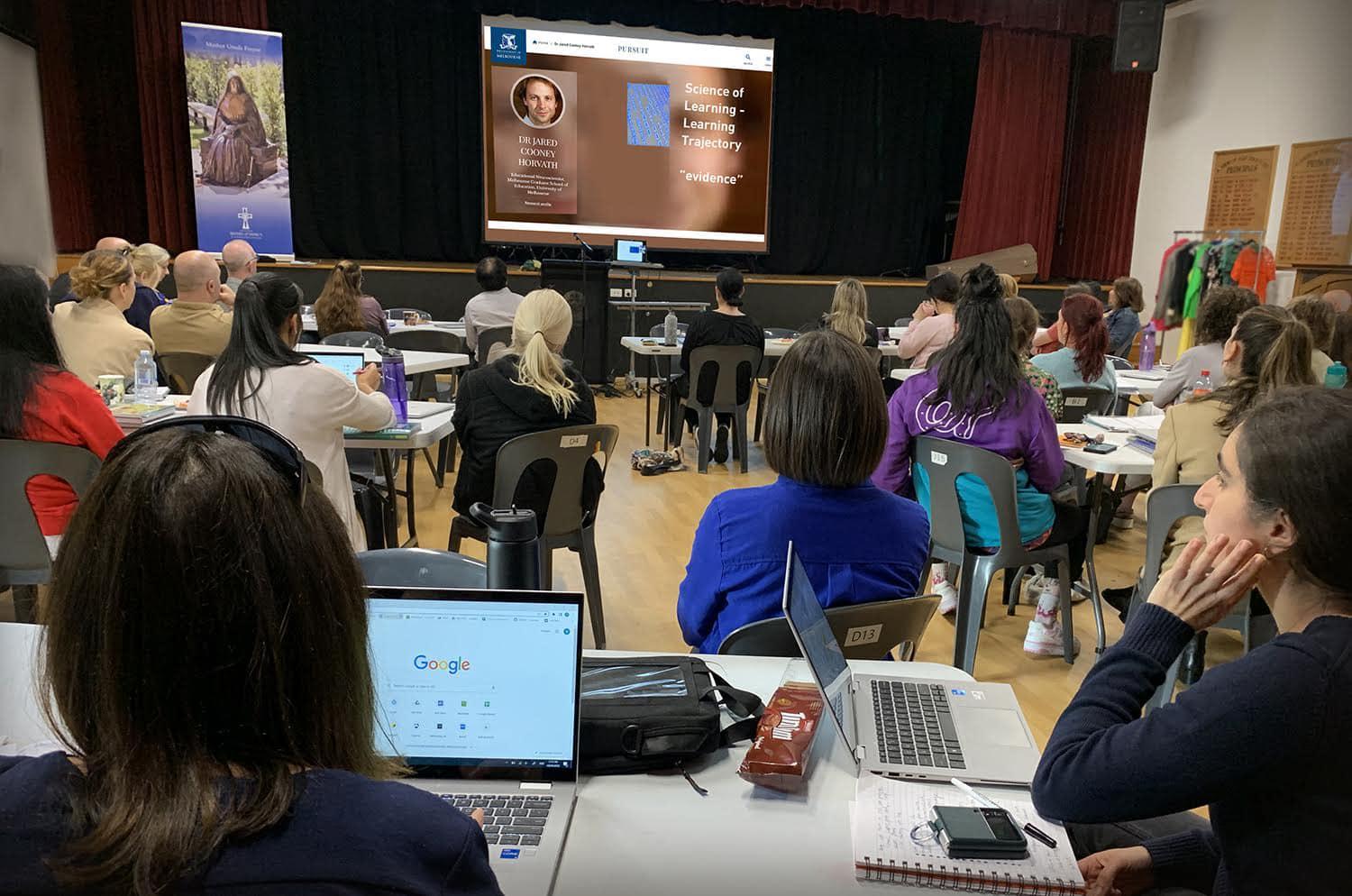Learning
DEPUTY PRINCIPAL, Learning & Teaching

Learning
DEPUTY PRINCIPAL, Learning & Teaching
Dear Parents /Guardians,
Welcome back to Term 2. This is a short but busy term especially for senior students. In five weeks, Year 11 students will be sitting their Unit 1 Exams and in one week later Year 10 students will sit their first set of exams.
On 24 April, teaching staff had a Professional Learning Day, Dr Jared Cooney Horvath conducted one of these sessions about the science of learning and in particular the learning trajectory. Here we discussed surface learning and then once we have learned the knowledge how we can move into the process of deep learning (forming, shifting then testing concepts). The majority of learning that students undertake at school is surface learning and concept formation.


Last week Ms Bongetti spoke with the Year 10s and Ms Muller and I spoke with the Year 12s about these strategies to develop surface learning and forming concepts. For Year 12s, this included some reminders from Mr De Cata’s presentation at the start of the year. I share some of these strategies with you so that you can also work with your child, in any year level to help them become good learners and prepare for the examinations and assessments this term.
Repetition is vital for building knowledge; students should revise the work covered regularly and it is important to sleep in between the revising the work. Students should revisit the work after they leave class, later that day, later in the week and again a week or two weeks later. When studying and revising, it is better to do it in small time slots, for example for three lots of 20-minute time slots with a five minute break in between rather than continuously for one hour. This helps the brain to process what it has learned.
Strategies for revision include ‘brain dump’ where your put your notes away and write down everything you know about a topic, then reviewing to check for accuracy and anything missed; creating mind maps; writing flash cards; writing and summarising your own notes, revising and rewriting these notes, making them shorter each time; completing practice questions.
Strategies to help form concepts and move into deep learning include embracing and learning from errors; revisit notes and adding to or summarise as necessary, redoing practice questions and writing their own practice questions, marking and reviewing a friend’s questions and providing feedback on the response, using teacher and peer feedback and starting to discuss, explain, defend concepts.
We recommend that your talk to your child’s teachers at the upcoming Student/Parent/Teacher Conferences about some of the strategies they recommend that your child can use to become a better learner in that subject.
Ms Lucy Neil
Deputy Principal, Learning & Teaching